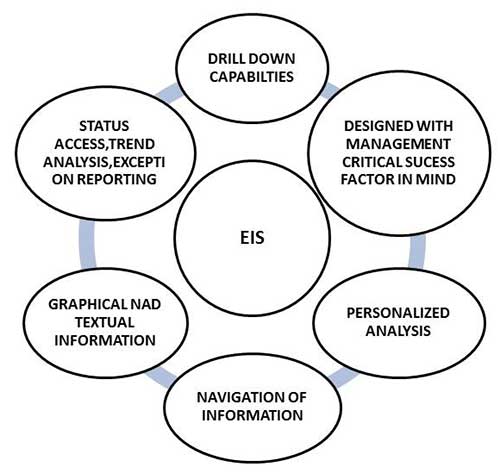
- MIS Tutorial
- MIS - Home
- Basic Information Concepts
- MIS - Basic Information Concepts
- MIS - Classification of Information
- MIS - Quality of Information
- MIS - Information Need & Objective
- Major Enterprise Applications
- MIS - Major Enterprise Applications
- MIS - Introduction
- MIS - Enterprise Resource Planning
- MIS - Customer Relationship Mgmt
- MIS - Decision Support System
- Knowledge Management System
- MIS - Content Management System
- MIS - Executive Support System
- MIS - Business Intelligence System
- Enterprise Application Integration
- MIS - Business Continuity Planning
- MIS - Supply Chain Management
- MIS Advanced Concepts
- MIS - Business Objectives of MIS
- MIS - System Development Life Cycle
- MIS - Development Process
- MIS - Managerial Decision Making
- MIS - Security and Ethical Issues
- MIS - Summary
- MIS Useful Resources
- MIS - Quick Guide
- MIS - Useful Resources
- MIS - Discussion
MIS - Executive Support System
Executive support systems are intended to be used by the senior managers directly to provide support to non-programmed decisions in strategic management.
These information are often external, unstructured and even uncertain. Exact scope and context of such information is often not known beforehand.
This information is intelligence based −
- Market intelligence
- Investment intelligence
- Technology intelligence
Examples of Intelligent Information
Following are some examples of intelligent information, which is often the source of an ESS −
- External databases
- Technology reports like patent records etc.
- Technical reports from consultants
- Market reports
- Confidential information about competitors
- Speculative information like market conditions
- Government policies
- Financial reports and information
Features of Executive Information System

Advantages of ESS
- Easy for upper level executive to use
- Ability to analyze trends
- Augmentation of managers' leadership capabilities
- Enhance personal thinking and decision-making
- Contribution to strategic control flexibility
- Enhance organizational competitiveness in the market place
- Instruments of change
- Increased executive time horizons.
- Better reporting system
- Improved mental model of business executive
- Help improve consensus building and communication
- Improve office automation
- Reduce time for finding information
- Early identification of company performance
- Detail examination of critical success factor
- Better understanding
- Time management
- Increased communication capacity and quality
Disadvantage of ESS
- Functions are limited
- Hard to quantify benefits
- Executive may encounter information overload
- System may become slow
- Difficult to keep current data
- May lead to less reliable and insecure data
- Excessive cost for small company
Advertisements